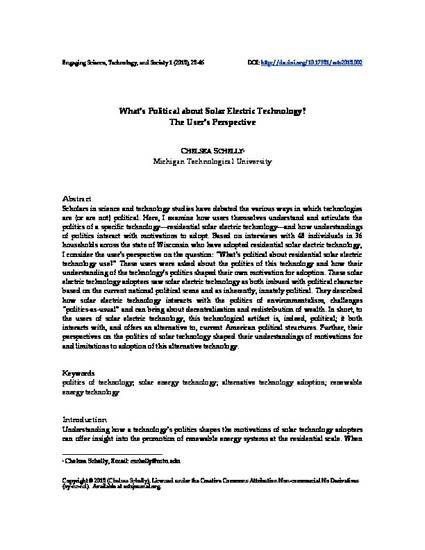
Scholars in science and technology studies have debated the various ways in which technologies are (or are not) political. Here, I examine how users themselves understand and articulate the politics of a specific technology—residential solar electric technology—and how understandings of politics interact with motivations to adopt. Based on interviews with 48 individuals in 36 households across the state of Wisconsin who have adopted residential solar electric technology, I consider the user’s perspective on the question: “What’s political about residential solar electric technology use?” These users were asked about the politics of this technology and how their understanding of the technology’s politics shaped their own motivation for adoption. These solar electric technology adopters saw solar electric technology as both imbued with political character based on the current national political scene and as inherently, innately political. They described how solar electric technology interacts with the politics of environmentalism, challenges “politics-as-usual”and can bring about decentralization and redistribution of wealth. In short, to the users of solar electric technology, this technological artifact is, indeed, political; it both interacts with, and offers an alternative to, current American political structures. Further, their perspectives on the politics of solar technology shaped their understandings of motivations for and limitations to adoption of this alternative technology.
Available at: http://works.bepress.com/chelsea-schelly/2/
